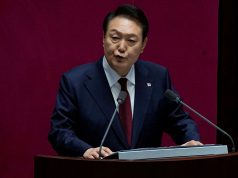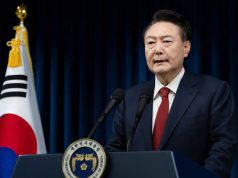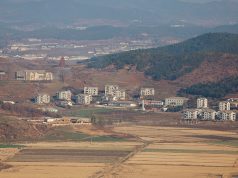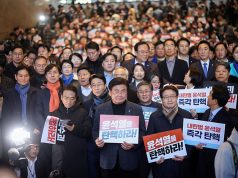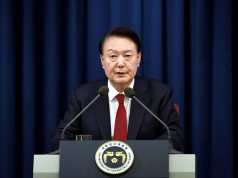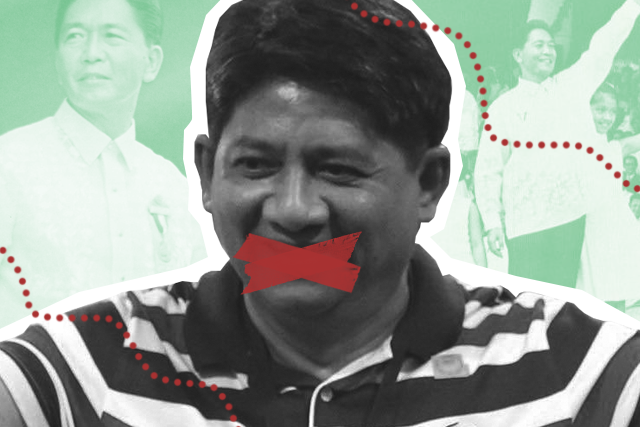
Larry Gadon, who describes himself as a “true-blooded Marcos loyalist,” provided incorrect answers during his “Fast Talk” segment with Karen Davila in ABS-CBN’s Senatorial Town Hall Debate for the 2019 midterm elections.
watched l*rry g*don's fast talk from yesterday and is2g i lost some brain cells listening to him talkhttps://t.co/VxsyNu32Fg
— 𝚓 (@xjahz) February 18, 2019
Marcos’ ill-gotten wealth
Davila asked Gadon if he believes the Marcoses have ill-gotten wealth, to which the lawyer replied that he does not think so.
His answer was posted on a popular discussion forum, where it got a lot of condemnation from Filipino users.
“Hindi, kasi ‘yung ginawa ng PCGG (Presidential Commission on Good Government), marami silang mga tinatawag natin na alleged cronies… kaya kinumpiska nila ‘yung pera, ‘di lahat ‘yun sa Marcoses,” Gadon answered.
“In fact, marami nang naisuli sa mga Marcoses kagaya ng mga bahay nila, ‘yung Sto. Niño Shrine, ‘yung mga paintings, ‘yung ibang kagamitan,” he continued.
According to PCGG, the quasi-judicial agency created by Former President Cory Aquino in 1986 tasked to recover the Marcoses’ ill-gotten wealth, the family has accumulated $5-10 billion throughout their nearly twenty-year rule.
“Some of the said ill-gotten wealth was successfully concealed and transferred from various foreign banks including those in Switzerland,” their report said.
On November 2018, Sandiganbayan charged former first lady Imelda Marcos guilty of seven counts of graft in relation to the Swiss bank accounts.
While Gadon claimed that some of the ill-gotten wealth retrieved by the PGCC were from Ferdinand Marcos’ cronies, the latter were considered associates of the late dictator who was the one responsible for awarding them with government commissions, projects, funds and high positions in his administration.
Human rights violation in Martial Law
The senatorial candidate was also asked whether he believes that no human rights violations occurred during Martial Law.
Gadon answered that there were lots of human rights violation during Cory Aquino’s time, although it is unrelated to the topic since Martial Law occurred during the Marcos administration and not during Aquino’s.
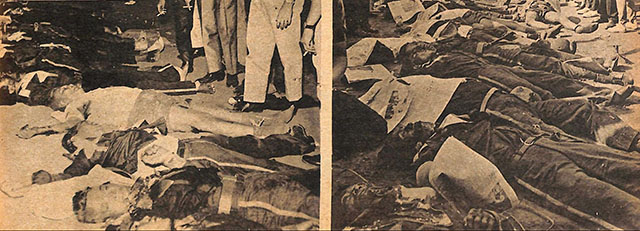
“Andiyan ‘yung Mendiola massacre, andiyan ‘yung pinatay ‘yung mga union leaders ng Hacienda Luisita. Sa panahon ni Noynoy, ‘yung SAF (Special Action Forces) 44. Mas marami ang human rights violations sa mga Aquino,” he replied to Davila.
Under the context of Martial Law, the Task Force Detainees of the Philippines (TFDP) reported that at least 9,000 Filipinos suffered from human rights abuses during Marcos’ rule.
There were 5,040 arrests, 1,217 cases of salvaging, 892 massacres, 352 disappearances, 165 cases of physical assault, 402 cases of harassment, 13 faked or forced surrenders, 93 cases of violent dispersal and three deaths in evacuations, among others.
A London-based non-government organization also visited the Philippines from November to December 1975 and found out that those detained in prison were tortured by state forces.
Reasons for Martial Law implementation
Gadon also claimed that Marcos implemented Martial Law due to the insurgence of communists after being asked by Davila if the family should apologize for the human rights violations committed.
A social media user declared his answer as “fake news.”
Fake news talaga si Gadon. I will relish his loss in May for sure. https://t.co/2sosHDfyff
— Daughter of Mindanao (@tessgarcia) February 18, 2019
However, the website of Martial Law Museum notes the opposite—the number of communists in the country that time were not enough to be considered a threat.
“Independent reports suggest that at the time, there were only about 1,000 NPA guerrillas, whose arms were old-fashioned. In the NPA’s own history, only 350 men with first-line rifles were documented at the time of Martial Law,” the article said.
“Other analyses suggest that it was, in fact, the declaration of Martial Law in 1972 which caused membership in these radicalized groups to swell,” it continued.
Juan Ponce Enrile in an interview before also claimed that Marcos’ declaration of Martial Law was the latter’s way of consolidating his power in the country. — Artwork by Uela Altar-Badayos




